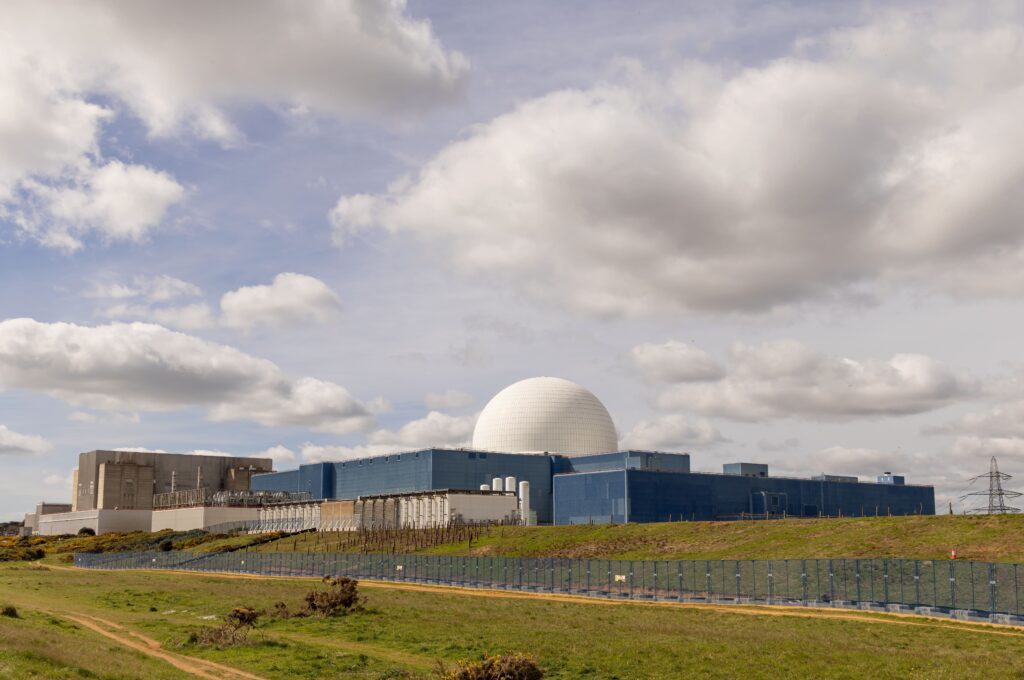Amidst a turbulent diplomatic backdrop, the British and American governments this morning announced a new agreement to strengthen co-operation on nuclear energy and accelerate its development within both countries.
The deal, titled the ‘Atlantic Partnership for Advanced Nuclear Energy,’ is intended to reduce regulation red tape, increase collaboration between British and American companies, and usher in a new ‘golden age’ of nuclear energy.
What’s in the Deal?
Key features of the agreement are a reduction in the average time taken to award nuclear license, from 4 years to 2, a new partnership on fusion energy research, and a commitment for both nations to eliminate dependency on Russian nuclear materials by 2028.
Also announced within the deal are a swathe of private commercial partnerships between British and American nuclear energy companies, with the largest being a plan for X-Energy and Centrica to build up to 12 advanced modular reactors in Hartlepool, County Durham – a project that could create 2,500 jobs, power more than 1.5 million homes, and generate £40 billion for the UK economy.
The Nuclear Landscape
The announcement is further evidence of the British government’s increasingly pro-nuclear attitude. Whilst previously the government has approached the area of nuclear energy with caution, and progress in the sector has been sluggish, in recent years Dowing Street has increasingly viewed nuclear power as essential to its target of achieving net zero by 2050.
In November 2024, Britain, along with 30 other countries, signed a pledge to triple its nuclear capacity by 2050, and earlier this year, the government took a concrete step towards that goal by greenlighting the construction of the Suffolk’s Sizewell C nuclear power station and announcing that it would be investing £14.2 billion into the project.

Moreover, today’s announcement is a key step towards rectifying the systemic flaws that currently limiting Britain’s nuclear potential; an interim report published last month by the Nuclear Regulatory Taskforce found that the UK’s nuclear regulation system was slow, bureaucratic, and costly. The newly announced deal features an agreement for the British and American nuclear regulation authorities to share information, which will hopefully cut costs and save time for regulators in both countries.
The agreement is due to be signed off by President Trump during his state visit to the UK this week, which comes amidst a highly eventful period for Anglo-American diplomatic relations. In May, Britain became the first country to sign a trade deal with the US after Trump’s unprecedented ‘liberation day’ tariff announcement in April, however in August the US State Department accused the British government of ‘significant human rights issues’ regarding free speech.
Furthermore, last week, Peter Mandelson, Britain’s ambassador to Washington, was sacked following the revelation of numerous supportive messages he sent to convicted paedophile Jeffrey Epstein. Epstein was also an associate of Trump, thus the entire situation has tarnished the trust in, and credibility of, both the US and UK governments, and thus this new nuclear agreement, and any potential issues that arise from it, may be met with increased scrutiny.
Nevertheless, the deal appears to have been received well by key stakeholders and shareholders alike; the share prices of Rolls Royce, one of Britain’s leading manufacturers of small modular reactors, have risen 1.6% since the London Stock Exchange opened this morning, and its CEO Tufan Erginbilgic said the company ‘welcomes the decisive action the UK and US governments are taking.’
Furthermore, the CEO of Urenco, who are building an Advanced Fuels Facility in Britain and will supply the US market with advanced HAELU (High-Assay Low-Enriched Uranium) fuel, described the deal as ‘a very positive step.’
However, despite this positive initial reception, whether the agreement will prove successful remains to be seen. Potential bumps in the road include Britain’s apparent inability to complete large scale infrastructure projects to schedule or to the correct budget. Both of these issues have come to the forefront with the construction of the new Hinkley Point C nuclear reactor, which was initially meant to be completed by 2025, but has since been delayed to 2031, and is expected to cost more than double the initial budget of £18 billion.
Furthermore, with a 2023 survey conducted by Britain Remade finding that only a slim majority (54%) of Labour MPs at the time supported the development of advanced nuclear technology within their constituencies, and the current crop of Labour MPs having a track record for rebellion on politically sensitive issues, Keir Starmer may find it challenging to pass the legislation needed to fulfil his government’s nuclear energy promises.
Final Thought
Overall, whilst today’s announcement highlights the British government’s commitment to clean energy and reducing Britain’s energy costs, which are amongst the highest in the world, and is a sign of the strength of the UK and US’ ‘special relationship,’ it is too early to be sure of whether it will be a success. Perhaps the best indicator will be the progress of Sizewell C.
If construction costs soar, and the project runs well over schedule, then it may be a sign that Britain is not yet ready to become a ‘clean energy superpower.’ However, if it remains under budget and is completed to schedule, Sizewell C could well be the first successful project of a ‘golden age’ of nuclear energy in Britain.
